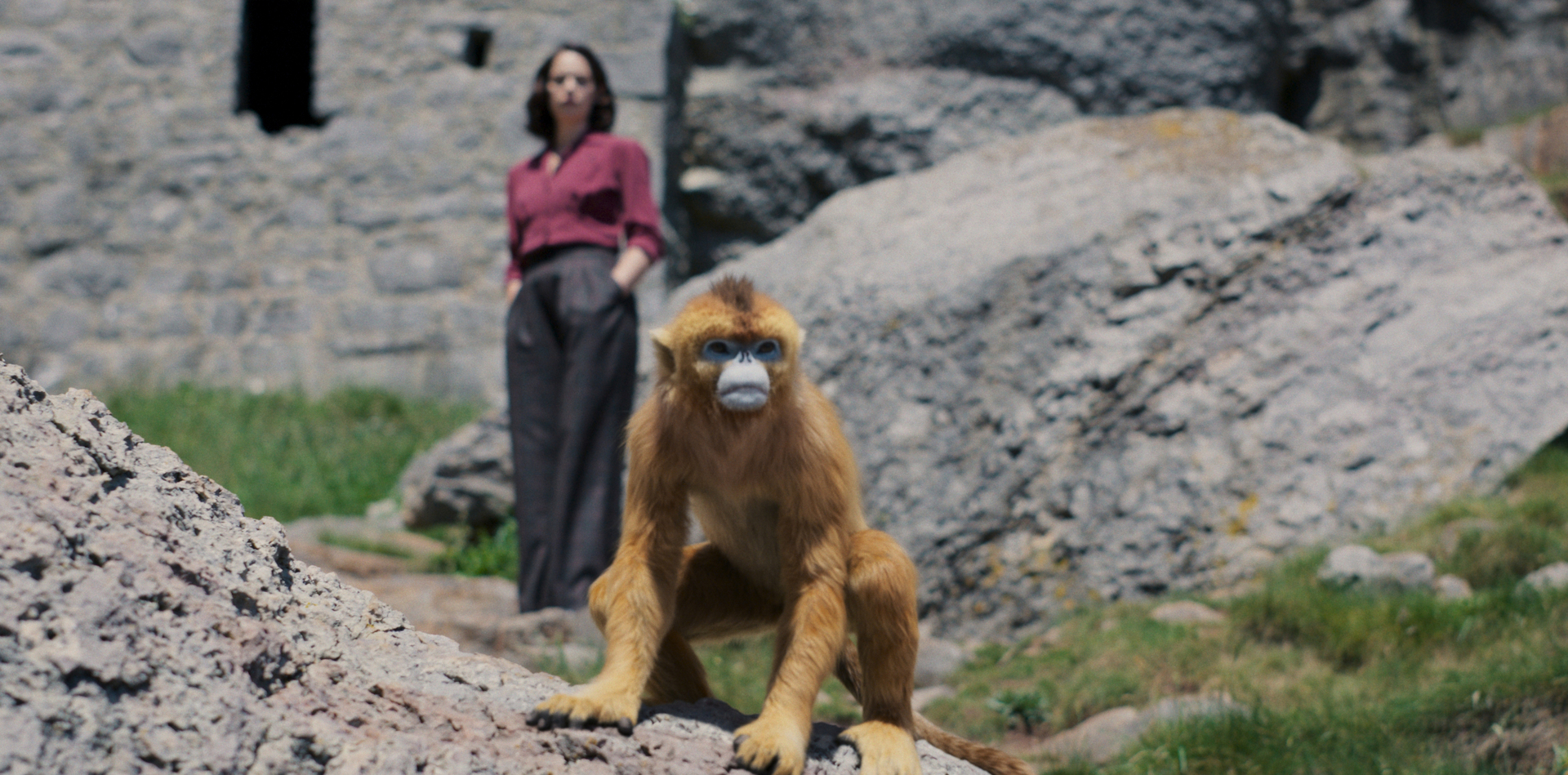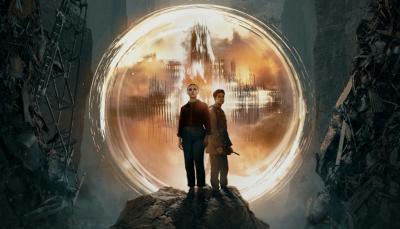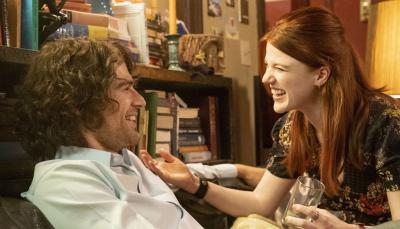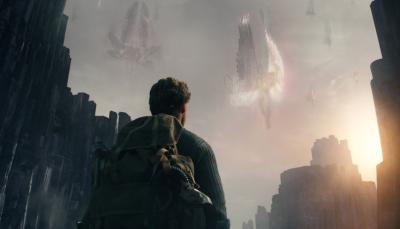'His Dark Materials' Plods Back to HBO
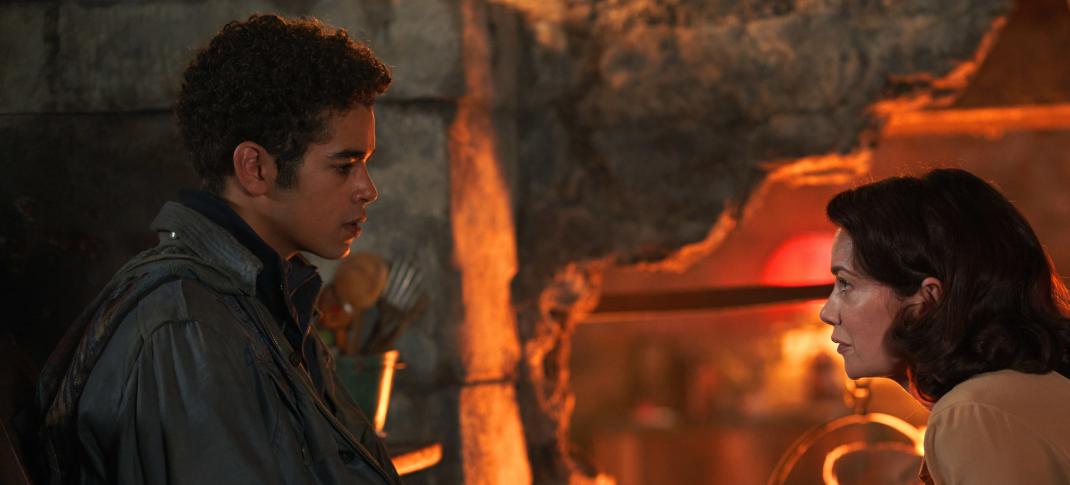
Amir Wilson and Ruth Wilson in His Dark Materials Season 3
Simon Ridgeway/HBO
It seems hard to remember now, but when BBC One and HBO announced they were finally getting His Dark Materials off the ground to series, it was an exciting development for fans of the book. Unlike George R.R. Martin, who knew enough about the industry to keep A Song of Ice and Fire back until the right project came along, both authors Phillip Pullman (of His Dark Materials) and Robert Jordan (of Wheel of Time) jumped at the first projects that came along in the post-Lord of the Rings success rush. The less said about what the Jordan estate went through to get their series on screen, the better, but Pullman's novel got a high-profile theatrical release, which flopped.
Due to those choices, both projects were delayed by almost a decade to follow in Game of Thrones' footsteps. Wheel of Time, perhaps because the entire book series is so unwieldy, has gone for a holistic interpretation. But His Dark Materials, from the jump, has stuck overly faithfully to the book. And that's fine! But the problem is, it's only fine. It's not exciting, not interesting, and an outdated model by a good decade.
The most frustrating part is that Season 2 seemed to recognize that Season 1 was far too "by the book" in its literal interpretation. Mrs. Coulter was given far more to do in the world of Earth than in the novel, the Will and Lyra portions more in-depth, and extra characters allowed to thrive. Not everything worked, mind you — Lin-Manuel Miranda as the miscast Lee Scoresby comes to mind — but it did manage to take the novel and make it work of a televisual story instead of a literal visual interpretation of a book.
That makes Season 3 such a disappointment. Rather than continue to alter the novels to something that works for television, the entire production has taken a step back. That's partly because the problem it was trying to solve for Book 2 — the absence of the adult characters — is not one that the third book has. There's plenty of Lord Asriel and Mrs. Coulter in the final story, and the show seems to mistake that for a reason to stop adding in any creativity.
The first two episodes are an excellent example of why this is a terrible notion. The opening episode, "The Enchanted Sleeper," keeps Lyra in a sleepy daze under Mrs. Coulter's watchful eye while Will is slicing and dicing his way through the universe, looking for her. Meanwhile, he's being pursued by two angels working for Lord Asriel, demanding he stop looking for Lyra and fight Asriel's war instead.
And that's where things are complicated. It's one thing to write and read about a religious war that crosses into a fantasy retelling of Paradise Lost, as the author can use a lot of words to get his point across to make scriptural references and otherwise intellectualize the place of religion in society and how it can tip into a theocracy. A television show does not have such luxuries. So instead, you get Cardinal MacPhail marching around his church barking orders and calling Lyra the new Eve while others scurry to stop her...I don't know, Eve-ing? Having an apple for lunch?
Episode 2, "The Break," at least moves the action forward, with Will and Lyra back together by the episode's conclusion. It also allows James McAvoy to start chewing on every piece of scenery available as he attempts to rally his troops to war. Henry V is not, but don't tell Asriel that. He's as convinced of his self-righteous cause to the point of delusional, unable to see anything beyond its borders. It's not like the show allows him any nuance either; there's no cost-sunk fallacy that one might see among those fighting a revolutionary cause that may fail, as one finds in better series like Andor. Perhaps that's out of the novel, but we are long past the point where sticking to the book is an excuse.
I want to discuss the concept of "sticking to the novel" as a fallacy that TV moved beyond when Game of Thrones was called out for a complete lack of people of color, which they excused because "That's the book." His Dark Materials seems to believe its choice of color-conscious casting has somehow solved the entire problem people were complaining about, but that was a symptom, not the disease.
People complained about the inability to apply modern mores to source material written during another era. His Dark Materials, published almost 30 years ago, has not aged all that well. The scene with the Romany, for example, which practically gets called "gypsies" in the book, the idea that Americas are all Texan cowboys, the idea that the U.K. is still somehow empire-esque, and the heteronormativity, all of these were so of the air in the 1990s, no one thought twice about them.
But this is the Year of Our Lord 2022, and times have changed drastically. It is no longer acceptable to plod along, dryly recreating a novel scene for scene. We have our imaginations for that, and the fact that television and CGI have caught up to make those imagined worlds real on screen is no longer a novelty worthy of doing just because you can. It is no longer enough to do the basic level of competency as an exercise and expect it to be enough for viewers to tune in. You have to give it more, something time and again. His Dark Materials has shown itself unwilling or unable to do.
That's tragic because the result shouldn't be possible: His Dark Materials Season 3's premiere is boring. How, when you are winding up for war; when you are visiting the world of the dead; when you are heading to places where sentient antelopes on wheeley discs are everywhere; are you boring? And yet the show manages it in spades.
At least it will only take four weeks to get through.

